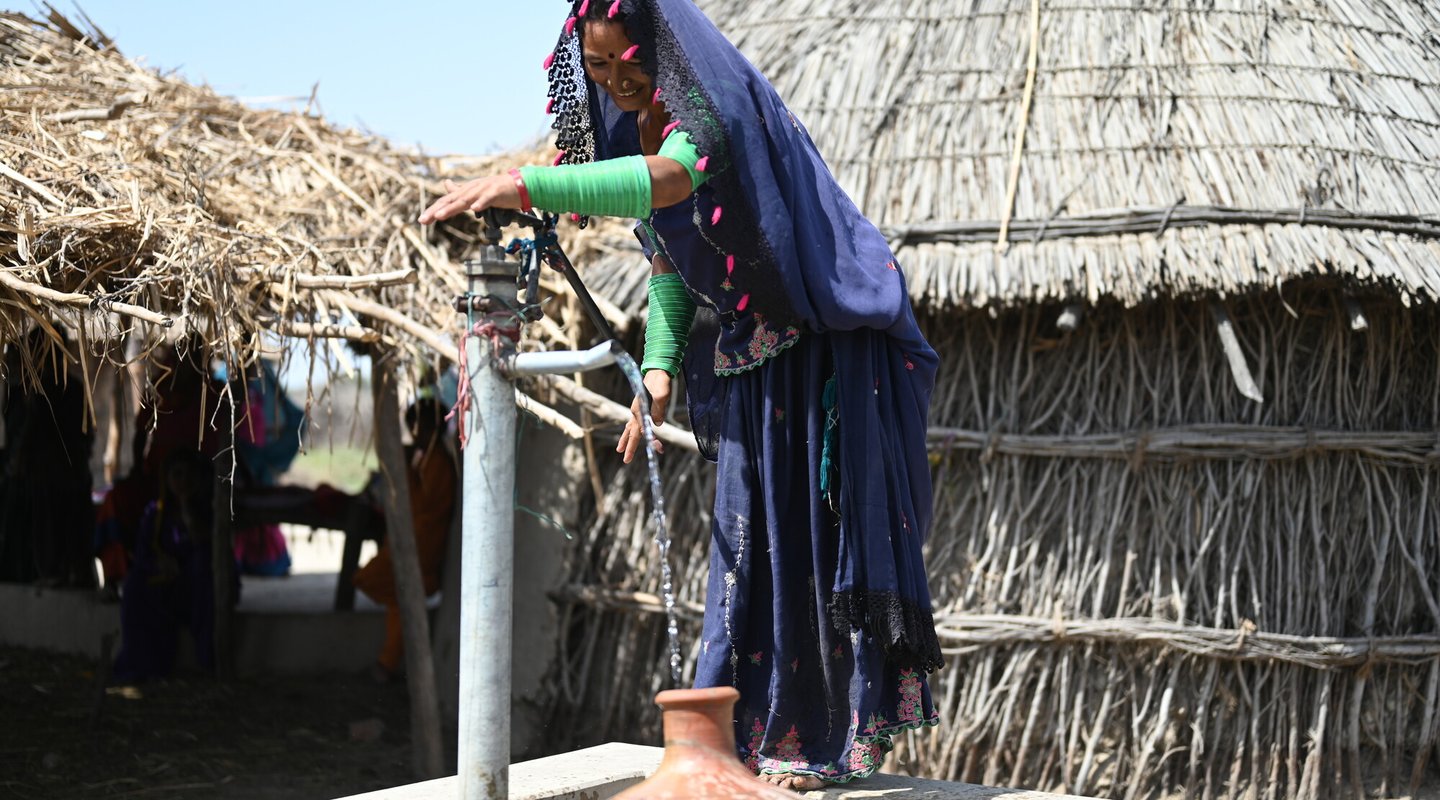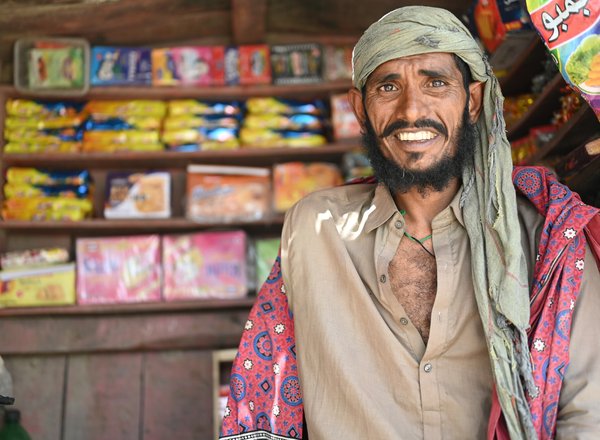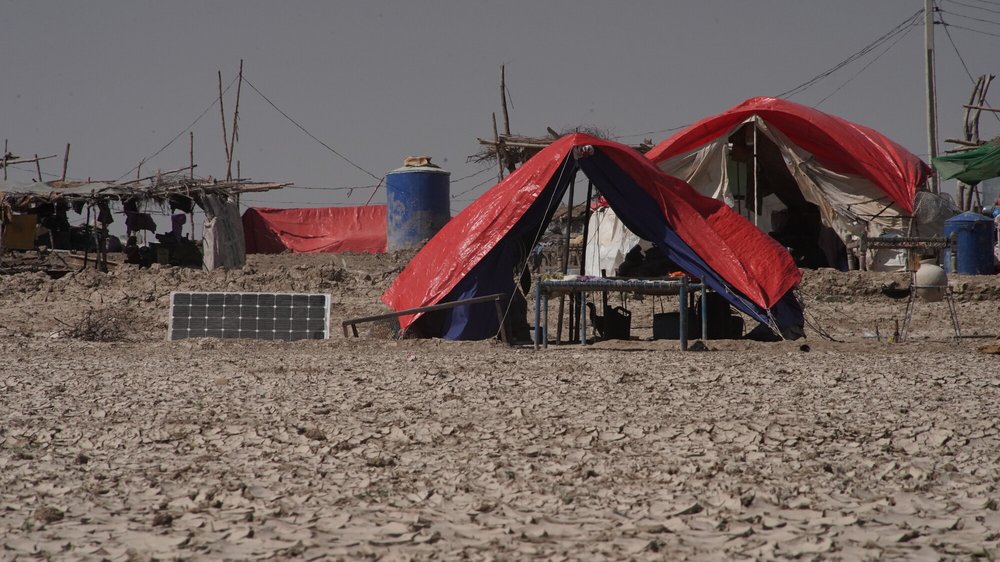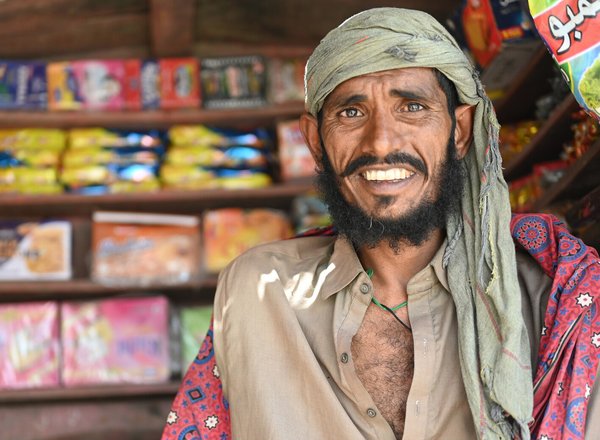Help communities hit hardest by the climate crisis to recover and rebuild their lives.
Climate Justice Appeal
Pull a thread…
...and you’ll see people who have done the least to cause the climate crisis are paying the highest price.
Pakistan produces less than 1% of climate-changing greenhouse gases. Yet communities there are facing challenges that are more extreme, more often.
Even before the floods in 2023 Samjho’s community in Sanghar, Sindh Province, needed better infrastructure and support.

A hand pump is installed in Samjho’s village . Photo: Tooba Niazi/Oxfam
If you travel in these villages you will not find many handpumps, so people have difficulty accessing water. To travel on foot to get water in this scorching heat is difficult but we all do it for our families. People have difficulty accessing water. We had a handpump near our village. The water was neither usable or drinkable.”
Samjho, Sindh Province, Pakistan
After the monsoon rains and flooding hit
Finding safe drinking water was more difficult than ever. Samjho’s community worked with our local partner, Strengthening Participatory Organization (SPO), to install new hand pumps in their village.
This hand pump gives us drinkable water… I no longer have to worry that my child will fall sick of drinking this water.”
Samjho, Sindh Province, Pakistan
When the floods hit, over two million homes were damaged or destroyed. Livestock and livelihoods were washed away. Ghulam is a father and a shopkeeper in Sindh Province, southern Pakistan.
In Sindh Province, Pakistan, Ghulam started his small roadside shop business with a cash transfer.
The floods have been devastating for our villages and others as well and it seemed that the communities affected wouldn’t be able to recover... Our village life became more challenging when the floods hit. I didn’t have money to send my children to school.”
Ghulam, Sindh Province, Pakistan
Working with SPO, Ghulam received cash to help him open up a small roadside shop on a road between local villages.

I lost one of my arms to an accident. It is difficult for a person with any disability to work. I did not have this shop before but I had been wanting to have something of my own and when we got the cash (transfer) I knew I had to have a sustainable source of earning. If the profit keeps running than I will start another shop as well... we are moving back to life. It rather seems like a miracle. I am earning good profit. If it continues this way, I will be able to send all my children to school.”
Ghulam, Sindh Province, Pakistan
In Sindh Province, Pakistan, Ghulam started his small roadside shop business with a cash transfer. Photo: Tooba Niazi/Oxfam.

We can unravel the web of climate injustice, together.
Climate Justice Appeal
It’s not fair that our ability to cope with the climate crisis is based on where we live, the resources we have available, and the value society places on our lives.
In 2017, Oxfam found a concerning trend over the last ten years. There have been more weather-related disasters, and this has become the number one reason for internal displacement.
This has resulted in more than 20 million people being forced to leave their homes every year. That’s like one person every two seconds.
Wealthy countries have contributed most to the climate crisis and have the most resources to address it.
In 2019, the super-rich 1% were responsible for 16% of global carbon emissions, which is the same as the emissions of the 66% of lowest-income people (5 billion people).
It’s a shocking fact. But even more shocking is that the richest 1% burned through twice as much of the carbon budget as the lowest-income half of humanity combined.
The whole village of Khaliqdar Jamali, Pakistan was displaced due to floods. They’ve set up a tent village nearby until their homes are rebuilt. Photo: Ingenious Captures/Oxfam

The whole village of Khaliqdar Jamali, Pakistan was displaced due to floods. They’ve set up a tent village nearby until their homes are rebuilt.
Oxfam is unravelling this web of injustice, thread by thread – and calling on wealthy countries to:
- Make the biggest and wealthiest polluters pay the highest price for their climate-wrecking behaviour. They can start by taxing high-polluting luxuries like private jets to help pay for their climate destruction.
- Reduce their greenhouse emissions the fastest and furthest, particularly by replacing fossil fuels with cleaner energy sources.
- Provide financial and technical support to low-emitting, lower-income countries that have contributed the least crisis and lack resources.
Get your free Sari bag today
Keep unravelling the web - and follow the thread to get your own free, foldable and upcycled Sari bag, when you begin a monthly donation.
